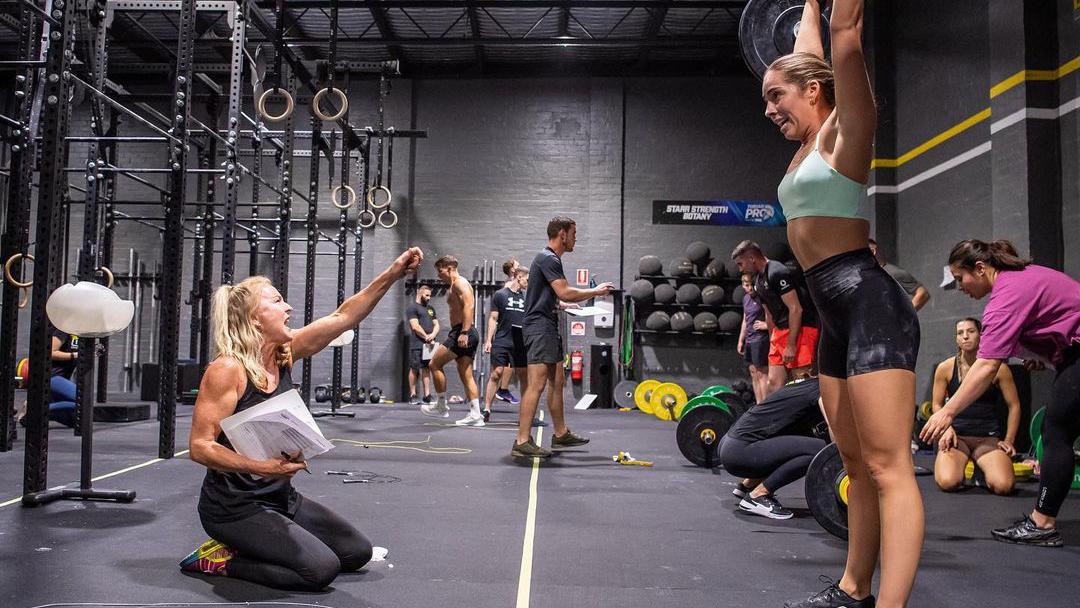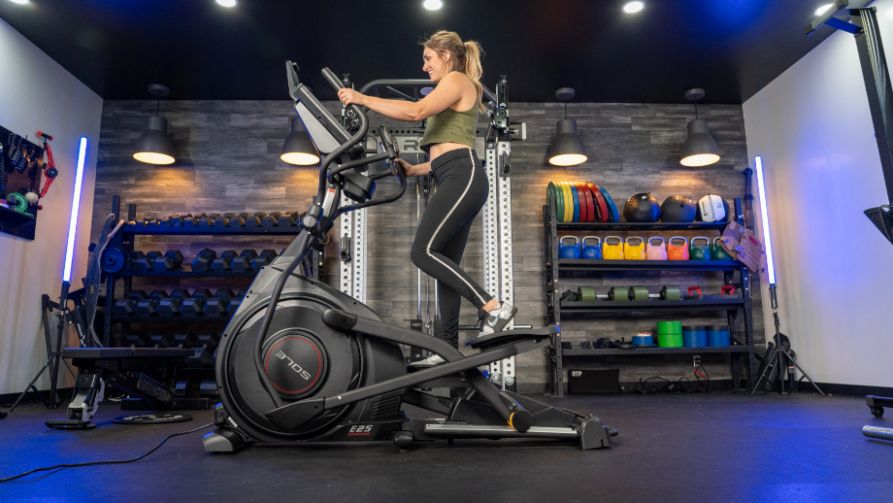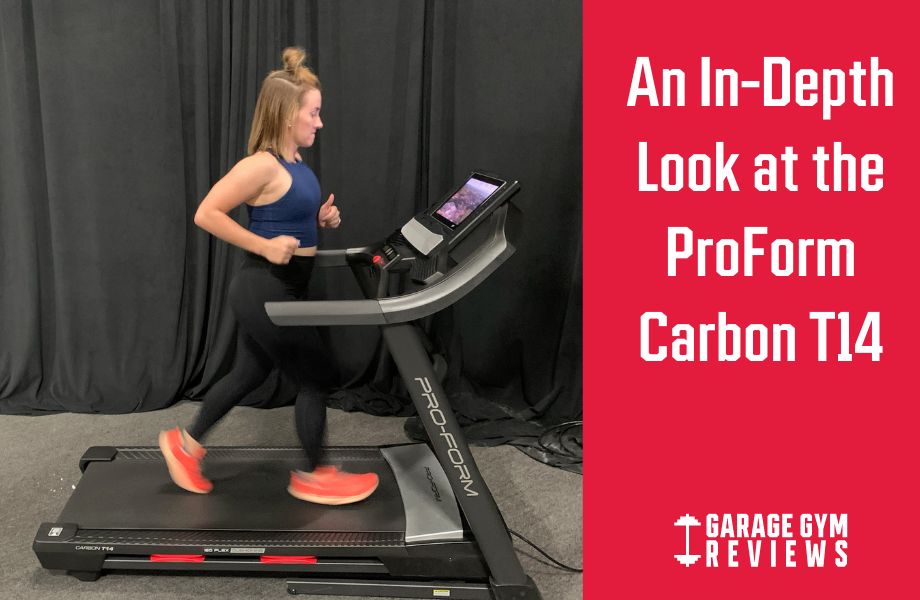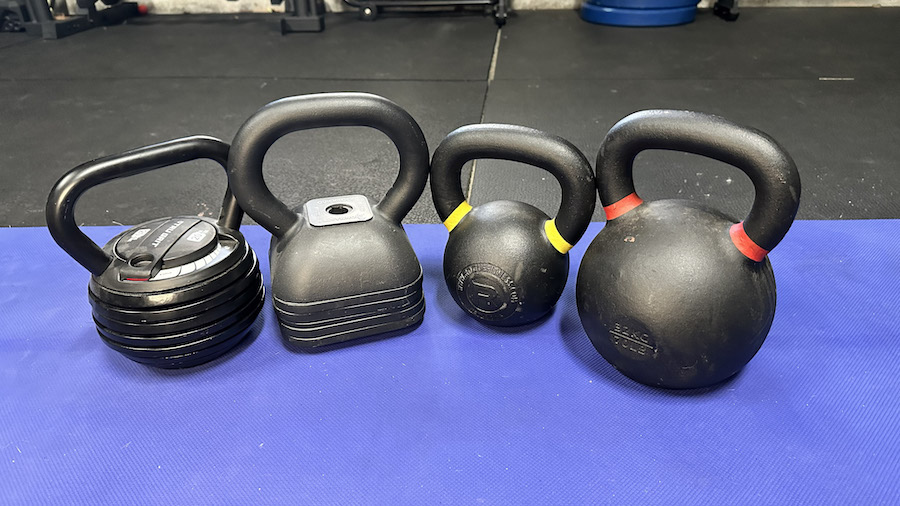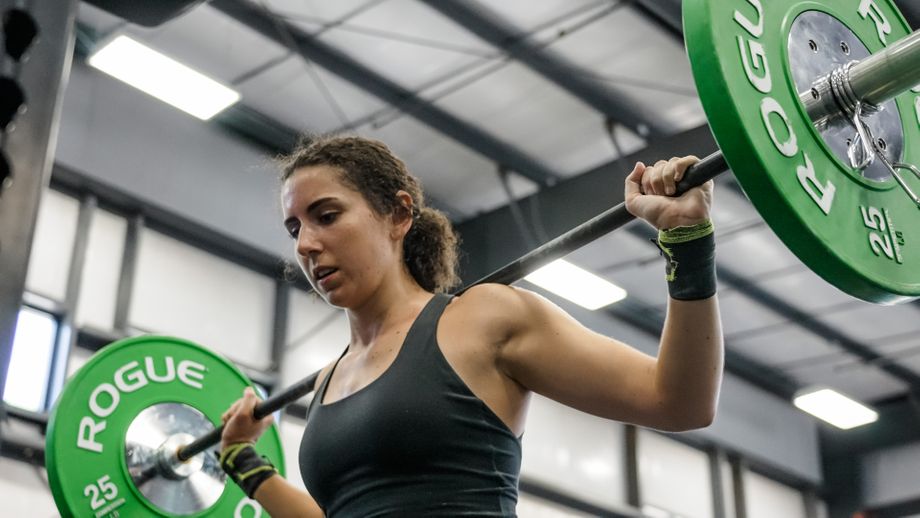Do you dream of leading a group of sweaty people through high-intensity workouts in a large, loud, probably un-air-conditioned gym? If yes, you may want to consider becoming a CrossFit coach.
However, as you may know if you are already invested in the CrossFit community, CrossFit trainers tend to catch a lot of flack from non-CrossFit fitness professionals.
In this CrossFit certification review, I’ll explain why that is, cover the good and the bad of the certification course, and help you decide if it’s the right path for you.
RELATED: Best Personal Training Certifications
CF-L1 Certified
I earned my CrossFit Level 1 certification in 2019 and worked as a coach in a CrossFit gym for about two years. I’ve been invested in the CrossFit community since 2014, when I first started as a way to keep active when I finished my last year of school sports. I’m also a certified personal trainer, and learning the CrossFit training methodology was a great addition to my skill set.
CrossFit L-1 Certification
CrossFit Level 1 Certification

Product Highlights
- 2-day live seminar
- Temporary online version
- No prerequisites
- Requirement for coaching at a CrossFit affiliate
- Focused on CrossFit methodology
- Foundational movement sessions
Pros & Cons
Pros
- Qualifies you to coach at a CrossFit Gym
- Allows you to open your own CrossFit gym
- Good teachings of CrossFit methodology
- Practical movement sessions
- Mix of lectures and hands-on learning
- Exam is only 50 questions
Cons
- Only 2 days of education
- No physiology or anatomy teachings
- Expensive for 2 days of learning
- Not NCCA-accredited
Bottom Line
The CrossFit Level 1 (CF-L1) course is a requirement to be eligible to coach at a CrossFit-affiliated gym or open your own affiliate. It consists of two days of education focused on the CrossFit fitness methodology and principles, and includes a mixture of lectures and hands-on learning.
A Quick Look at the CrossFit Certification Process
Becoming a CrossFit coach starts with the Level 1, or L1, course. It is the bare minimum required to legally coach at a CrossFit affiliate and/or open your own CrossFit affiliate.
Traditionally, it takes just two days to earn your CrossFit Level 1 certificate (assuming you pass the exam on the first go-around), although there’s now an online option that is self-paced with the exception of an attendance-mandatory live webinar.
From there, you can pursue additional education, going on to earn your CrossFit Level 2 (CF-L2) certificate and, if you want to be among the highest-credentialed CrossFit trainers, your CrossFit Level 3 (CF-L3) certification. At the CF-L3 level, you can apply to earn the official Certified CrossFit Trainer (CCFT) credential. Technically, only CF-L3 holders can call themselves “certified CrossFit trainers.”
The current highest level of certification for CrossFit coaches is the CrossFit Level 4 (CF-L4), which you earn by participating in (and passing) a “one-day evaluation of a trainer’s ability to effectively coach CrossFit movements and run a successful class,” according to the CrossFit website.
The rest of this review focuses on the CF-L1 course.
Before You Sign Up:
- Attending and passing the CrossFit L-1 certificate course qualifies you to coach at a CrossFit-affiliated gym, but is highly unlikely to qualify you to work at a “regular” gym, such as an LA Fitness, 24 Hour Fitness, or similar.
- The course requires attendance to a live session whether you choose the in-person or online option. If you register for the online option, you’ll attend a live webinar.
- Passing the Level 1 Certificate Course does not necessarily teach you how to be a stellar coach. There is only so much you can learn in three days. Many people consider the CrossFit L1 a very minimal first step in becoming a CrossFit coach.
Is the CrossFit Certification Worth It?
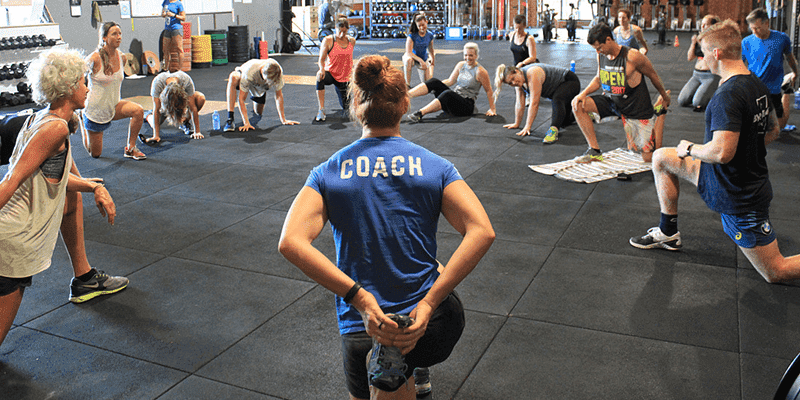
The Level 1 course costs $1,150 if you opt for the in-person version and $1,000 if you opt for the online version. That’s a lot of money to pay for two days of education, especially when you compare it to the cost of the best personal trainer certification courses, which ranges from a few hundos to more than $1,000, but provides a much more in-depth and broad education.
The CF-L1 certainly isn’t right for everyone, but it is a requirement to coach at a CrossFit gym.
RELATED: Best Health Coaching Certification Programs
Great for:
- People who want to become CrossFit coaches
- People who like CrossFit and want to learn more about it
- Certified fitness professionals who are interested in the CrossFit methodology
Not recommended for:
- Aspiring trainers who want to work in a “regular” gym, like 24 Hour Fitness
- Certified personal trainers who want to specialize in a certain niche (spend your money there, not on this)
CrossFit Certification Specs
| Prerequisites | Be at least 17 years old |
| Number of study options | 2 (in person or online, although the online version may be temporary) |
| Hard copy of materials available? | Yes |
| Pricing | $1,150 (in person) or $1,000 (online) |
| Course length | 3-day seminar, 9 a.m. to 5 p.m each day (in person); self-paced + one live webinar |
| Platform | In person or online |
| Exam format | 50 questions, multiple-choice, in-person or online |
Course Prerequisites
There are no prerequisites to take the CrossFit L-1 course, other than the minimum age requirement. You must be at least 17 years old to sit for the exam.
You can participate in the course if you’re under the age of 17, but you will not be eligible for the exam and you will receive a certificate of attendance. You can return to another seminar after your 17th birthday to take the exam and earn your credential.
I feel that the prerequisite is appropriate for an entry-level course, so CrossFit scored 5 out of 5 points in this category.
RELATED: The 5 Best Strength and Conditioning Certifications
Course Options and Pricing
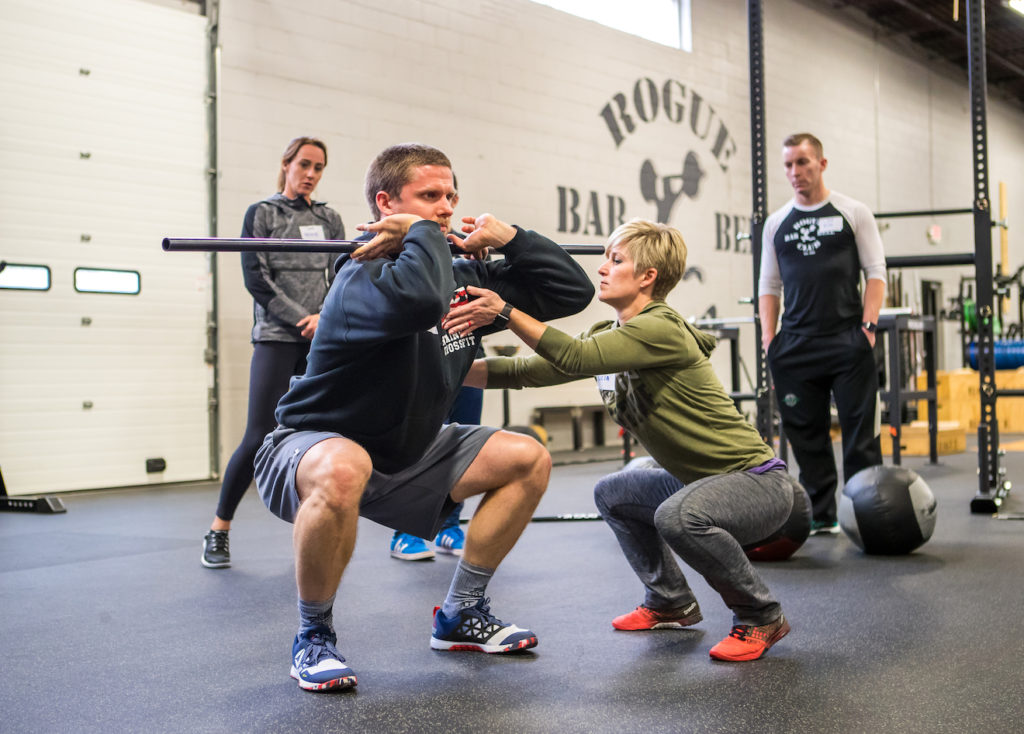
You have two options: in-person and online. The in-person course costs $1,150, and you’ll go to a CrossFit gym for two full days of learning. The online option costs $1,000, and you’ll complete a self-paced portion of the course before attending a live Q&A webinar with CrossFit HQ trainers via Zoom.
CrossFit does offer pay-over-time options with Klarna for those who qualify. You can find out if you qualify after you add the course to your cart and check out.
The L1 course earned 3.25 out of 5 points for this category, since it fell into the average price range of about $800 to $1,000 and has payment plan options.
Course Material: What You’ll Learn
Unfortunately, the reality is that the CF-L1 course does not adequately address critical components of fitness training required to safely and effectively progress individuals through a periodized training program (and, as “random” as CrossFit can feel, periodization and progressive overload still constitute a large portion of the methodology).
The CF-L1 addresses Crossfit-specific points of performance and very basic biomechanics of foundational movements. You’ll learn the functional movements and the 10 skills of general physical preparedness (GPP), as defined by CrossFit, and some movement modifications to make for beginners.
During the course, instructors cover proper form for the following exercises:
- Air squat, front squat, overhead squat
- Strict press, push press, push jerk
- Deadlift, sumo deadlift high pull
- Medicine ball clean
- Thruster
- Snatch
- Kipping pull-ups and muscle-ups (and modifications)
RELATED: A Beginner‘s Guide to CrossFit Exercises
Most of the methodology lectures are an extension of Glassman’s 2002 CrossFit Journal article describing the 10 skills that make up GPP:
- Cardiovascular/respiratory endurance
- Stamina
- Strength
- Flexibility
- Power
- Speed
- Coordination
- Agility
- Balance
- Accuracy
The caveat is that the lectures mostly cover the importance of possessing these skills (which I agree with), but not so much how to help the average person start working toward these skills—and maintain and progress upon them.
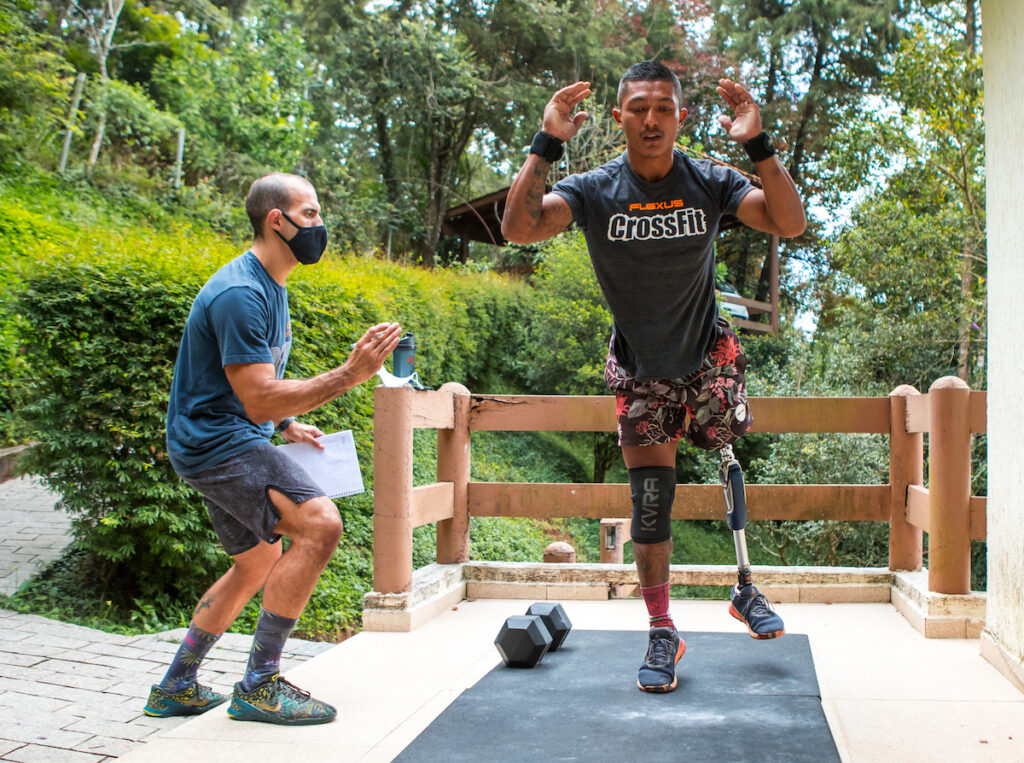
My hot take? Chances are, if you don’t have additional education in fitness, you may not be able to pinpoint why, exactly, someone’s overhead squat form sucks, or what, exactly, they need to do in order to fix it. Or, for instance, you may not know what accessory exercises or programming (or even general advice) to provide to an intermediate member whose squat progress has stalled.
RELATED: CrossFit Events Calendar
Truthfully, the only reason I felt comfortable stepping out onto the gym floor as a coach after earning my L1 was because I had already been a certified personal trainer for two years, and felt confident explaining to people how the progression of fitness works.
This is not at all to say that every CrossFit L-1 coach is a dimwit; rather, I’m saying, this course is not adequate on its own to take someone from zero fitness education to successful trainer—not even in a CrossFit-specific setting.
You’ll also learn about Greg Glassman’s nutrition philosophy, which is essentially the paleo diet: eat fruit, vegetables, meats, nuts, and seeds. To be perhaps too honest, I don’t think this information has a place in this course and I believe the time would be better spent educating participants on exercise science. If you want to learn about nutrition and become a nutrition coach who can offer multifaceted guidance to your clients, you should pursue, at a minimum, a nutrition coaching certification.
Finally, I was somewhat disappointed in the Level 1 course because I did not feel that it adequately taught me how to manage a class. Luckily, most L1 participants have likely been attending CrossFit classes for some time, and hopefully understand how to bring a small group of people through a warm-up and a WOD and a cool-down or quick stretch routine.
To be fair, there’s only so much that can be taught in two days.
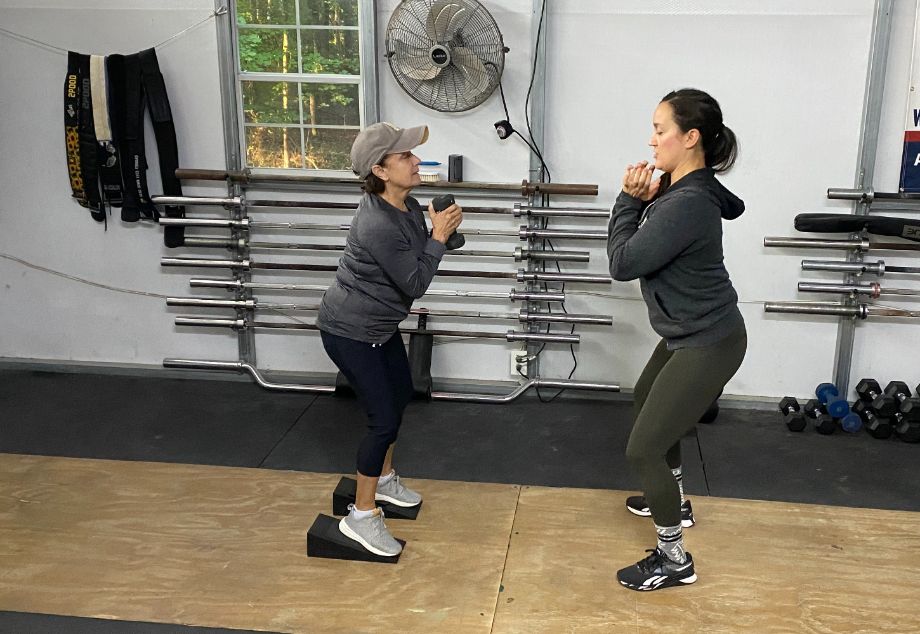
Course Design and Layout
As mentioned, the Level 1 course takes place over two days (or at your own pace if you opt for the online version). The program is separated into four main components:
- Methodology lectures
- Movement lectures
- Movement practicals
- Workouts
The methodology lectures in the Level 1 course essentially answer the question, “What is CrossFit and why is it set up the way that it is?”
The movement lectures involve a CrossFit HQ trainer explaining how to do a functional movement, and the movement practicals are breakout sessions wherein you divide up into small groups and practice said movement with a PVC pipe.
The breakout sessions are honestly the best part of the entire course, in my opinion, because the HQ trainer will not relent until you perform satisfactorily. It’s actually quite humbling. Exceptions and modifications are made, of course, for injuries, pregnancy, and other circumstances.
At the end of each day, you’ll participate in a workout as a group. Participation is required in order to take the exam, and it’s a good time to apply what you learned that day.
References and Data
This is one area where CrossFit falls tremendously short. In the Training Guide handbook, there is not one single peer-reviewed reference, not even in the section on nutritional supplementation, which really irks me as a certified sports nutrition coach.
Again, I am not saying that CrossFit is providing bad or wrong information, but any reputable educational institution should 100% provide clear references to peer-reviewed, scientific data to support their teachings.
RELATED: Is CrossFit Bad For You? The Untold Truth
Studying Experience
The only study material for the Level 1 course is the CrossFit Level 1 Training Guide, which you can download for free as a PDF or order as a soft-cover, spiral-bound book.
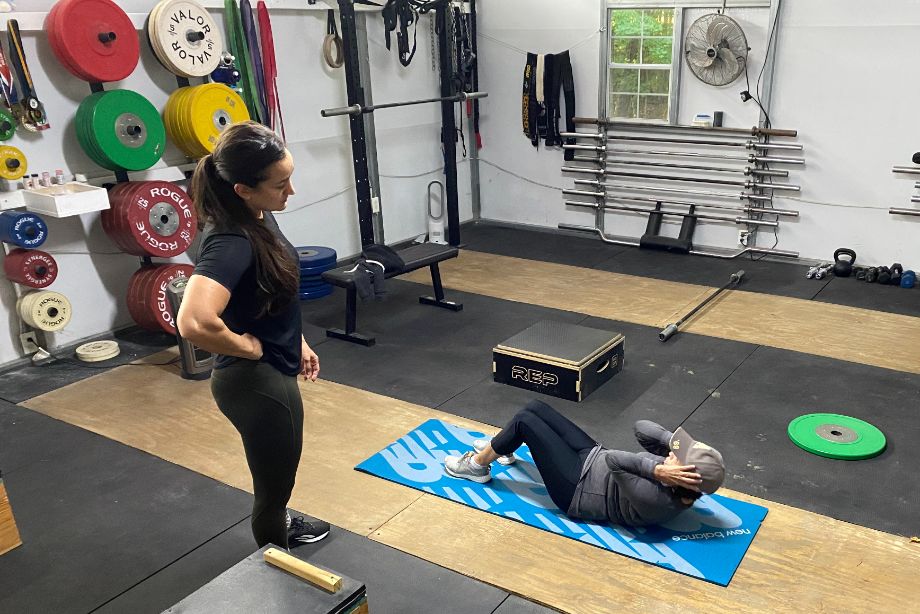
Exam Options and Test-Taking Experience
Depending on the course format (online or in-person), you’ll take the exam online or in person.
Registering for the Exam
You’re automatically registered for the exam when you sign up for the course. If you opt for the in-person course, you’ll take the exam on a scantron at the end of the second day. For online students, you’ll take the test at the end of the self-paced portion.
Exam Format
The exam consists of 55 multiple-choice questions, 50 of which are scored and 5 of which are for research purposes (for CrossFit to potentially include on future exams).
Because the CrossFit Level 1 exam is now accredited by the American National Standards Institute (ANSI), it earned 3 out of 5 points for this category. Fitness certification programs accredited by the National Commission on Certifying Agencies (NCCA) earn 5 out of 5 points.
Post-Certification Perks
After becoming a Crossfit Level 1 coach, you are qualified to coach at a CrossFit box or open your own CrossFit box. There are no professional post-certification perks that I am aware of.
RELATED: NASM vs NSCA: Which Is the Best CPT Cert?
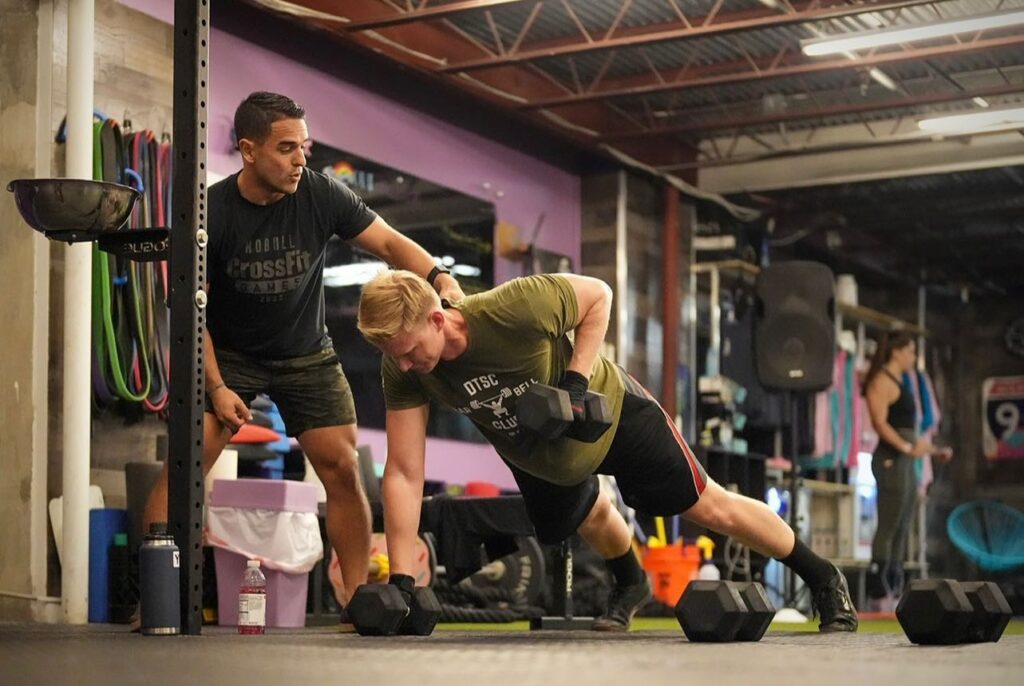
CrossFit Recertification Requirements
There are no continuing education requirements for the CrossFit L-1 credential. All you have to do is take the revalidation course and retest every five years, which means the course only earned 1.5 out of 5 points in this category (the need for a retest bumping the score up by 0.5).
Honestly, this is a lot of people’s problem with CrossFit coaching.
Because an L-1 is all that’s required to coach at a CrossFit gym—and there are no continuing education requirements—not all coaches at a CrossFit affiliate are good coaches, or even qualified to be teaching people how to snatch and clean-and-jerk (or even squat).
Frankly, I think CrossFit coaches should be required, at a minimum, to hold some combination of additional training in order to run classes. That could look like:
- CrossFit L-1 credential plus certified personal training credential
- CrossFit Level 2, Level 3, or Level 4
- CrossFit Level 1 plus a certified Olympic weightlifting coach credential (minimum USAW Level 1)
And from there—after earning a CF-L1 and another relevant credential—I’d love to see CrossFit institute a continuing education requirement similar to what’s required for other fitness certifications. This is most commonly presented as 20 hours of continuing education every two years, achieved through earning a specialized credential; attending workshops, conferences, or lectures; taking college-level courses; or taking additional courses provided by the certifying agency.
(Note: If you go on to earn the Level 3 credential and apply for the Certified CrossFit Trainer (CCFT) certification, you will have to complete continuing education to maintain your L3.)
CrossFit Certification vs Personal Training Certification
Point blank: A personal training certification course is a much more in-depth, science-heavy educational endeavor than a CrossFit L-1 certification. Personal training certifications typically begin with a deep dive into human anatomy, physiology, and exercise science.
The ACE certification, for example, dedicates multiple chapters to training individuals with contraindications to exercise such as heart disease, diabetes, high blood pressure, and other chronic conditions.
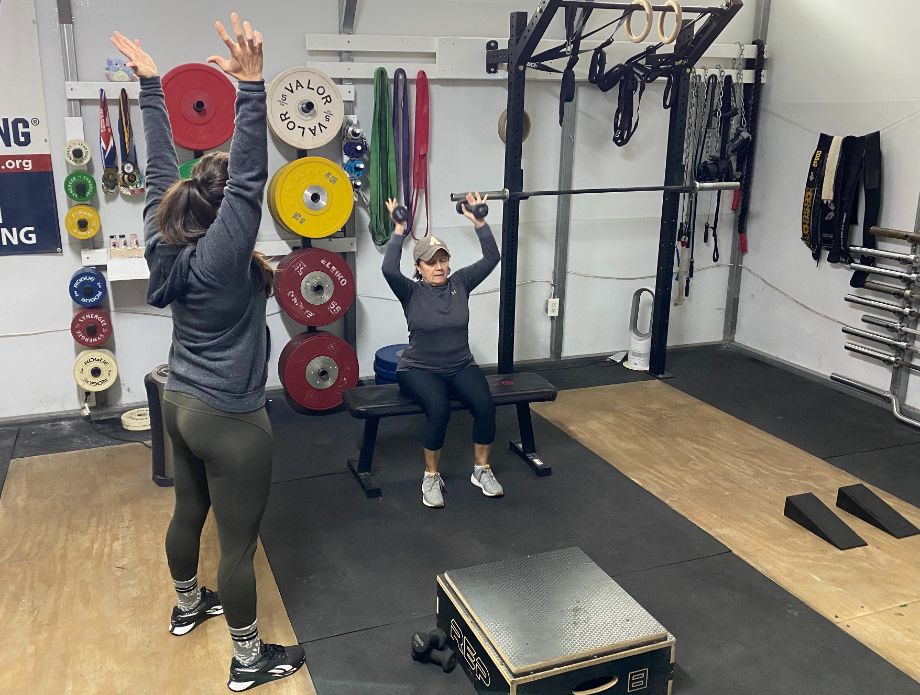
The NASM-CPT (see our NASM review) focuses heavily on principles of progressive overload and designing individualized training programs based on data you gather from assessments that look at your clients’ balance, coordination, strength, and cardiovascular endurance.
I believe the CrossFit Level 1 training program is a wonderful layer on top of a certified personal trainer course, but if I were going to tell you to pick one, I’d say go for a CPT credential. It will set you up with the knowledge you need to safely and successfully train people from a wide range of backgrounds, and you can always specialize in CrossFit later.
Read our full guide on how to become a personal trainer.
| CrossFit L-1 | CPT | |
| Prerequisites | Be at least 17 years old | Be at least 18 years old; hold a high school diploma or equivalent; hold a current and valid CPR/AED certification |
| Study options | 2 (in person or online) | Dependent on the certifying agency; typically 2 to 4 options to choose from |
| Hard copy of materials available? | Yes | Yes |
| Pricing | $1,150 (in person) or $1,000 (online) | Ranges from as little as $250 to more than $2,000 |
| Course length | 3-day seminar, 9 a.m. to 5 p.m each day (in person); self-paced + one live webinar | Usually 6 months to 1 year, but more or less depending on the certifying agency |
| Platform | In person or online | Typically all online |
| Exam format | 50 questions, multiple-choice, in-person or online | Usually 100 to 125 multiple-choice questions, proctored at home or in a testing center |
CrossFit Certification Review: Final Verdict
The Level 1 certification won’t put you in a position where you can coach CrossFitters to the CrossFit Games. But it is a necessary first step if you want to work as a CrossFit coach or open your own box.
It’s best paired with an additional fitness credential, ideally something that covers human movement science and principles of fitness training like progressive overload, specificity, and adaptation.
And for anyone who just loves CrossFit and has a spare $1,000 lying around, it’s not a bad way to spend a weekend.
CrossFit Certification Full Rating
CrossFit Level 1 Certification
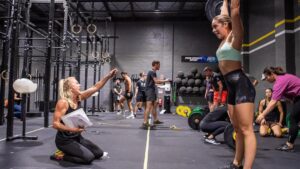
The CrossFit Level 1 (CF-L1) course is a requirement to be eligible to coach at a CrossFit-affiliated gym or open your own affiliate. It consists of two days of education focused on the CrossFit fitness methodology and principles, and includes a mixture of lectures and hands-on learning.
Product Brand: CrossFit
Product Currency: $
Product Price: 1150
Product In-Stock: InStock
3.43
CrossFit Certification: FAQs
How long is a CrossFit Level 1 certification good for?
The CF-L1 credential is valid for five years from the date of your exam.
What can you do with a CrossFit Level 1 certification?
A CrossFit Level 1 credential allows you to coach at a CrossFit affiliate or open your own affiliate.
What is the highest level of CrossFit certification?
At the time of writing, the current highest level of CrossFit certification is the CrossFit Level 4 (CF-L4). To earn the Certified CrossFit Trainer (CCFT) credential, you must pass the Level 3 course; the Level 4 builds upon this with a full-day, in-person evaluation of your skills.


